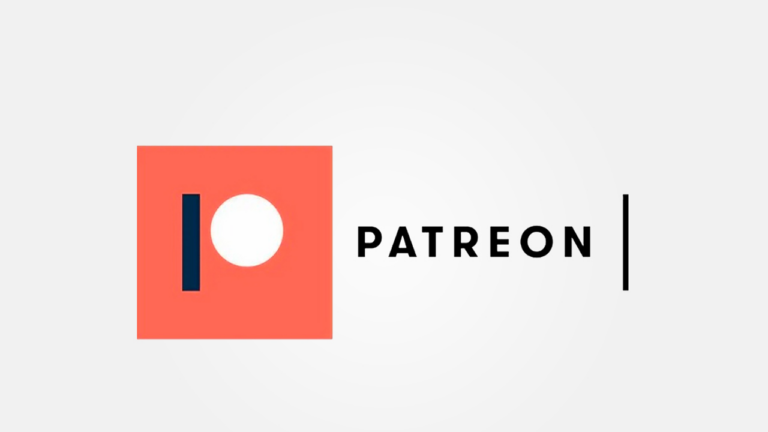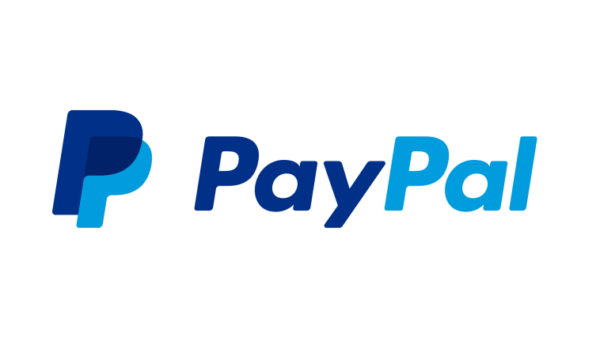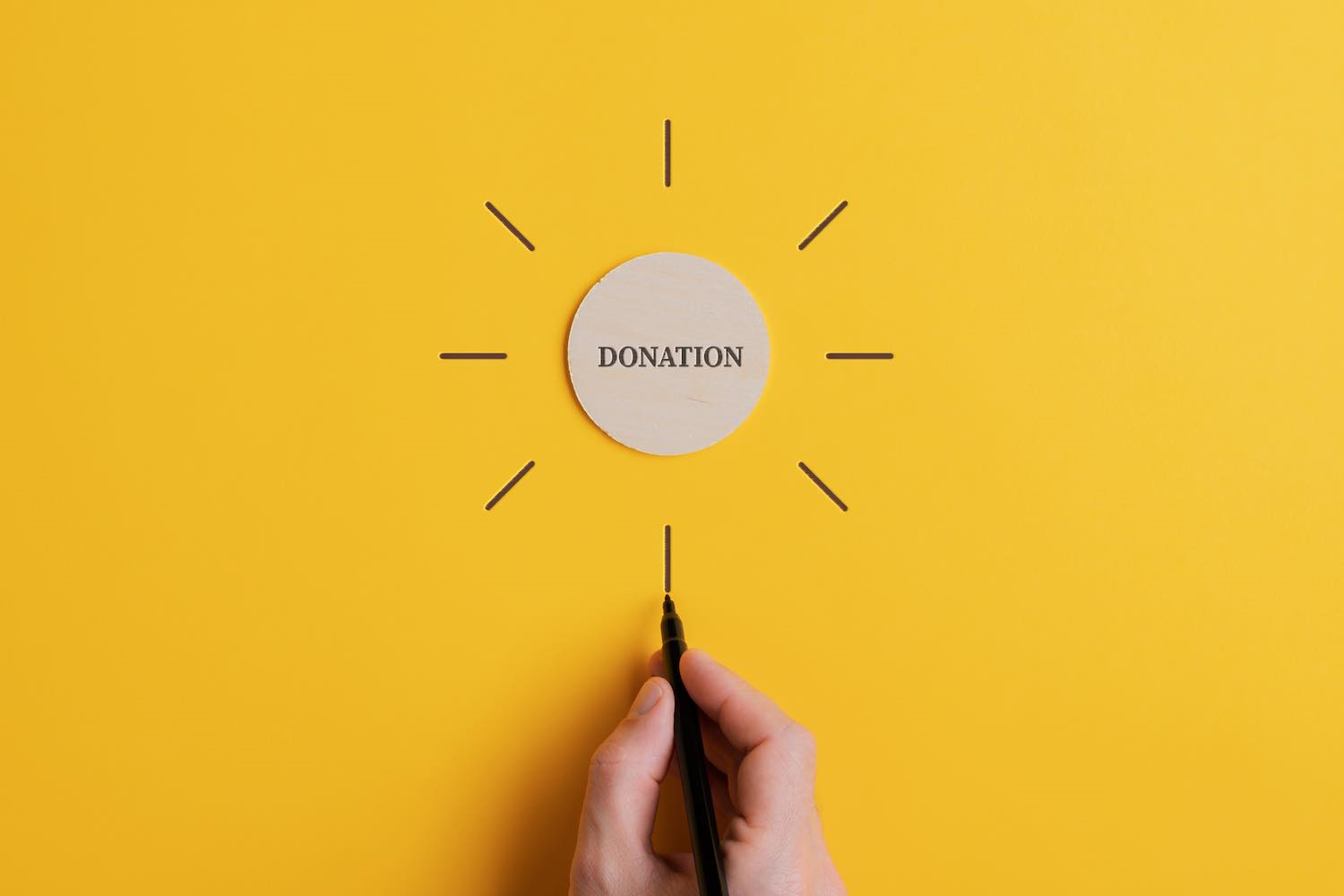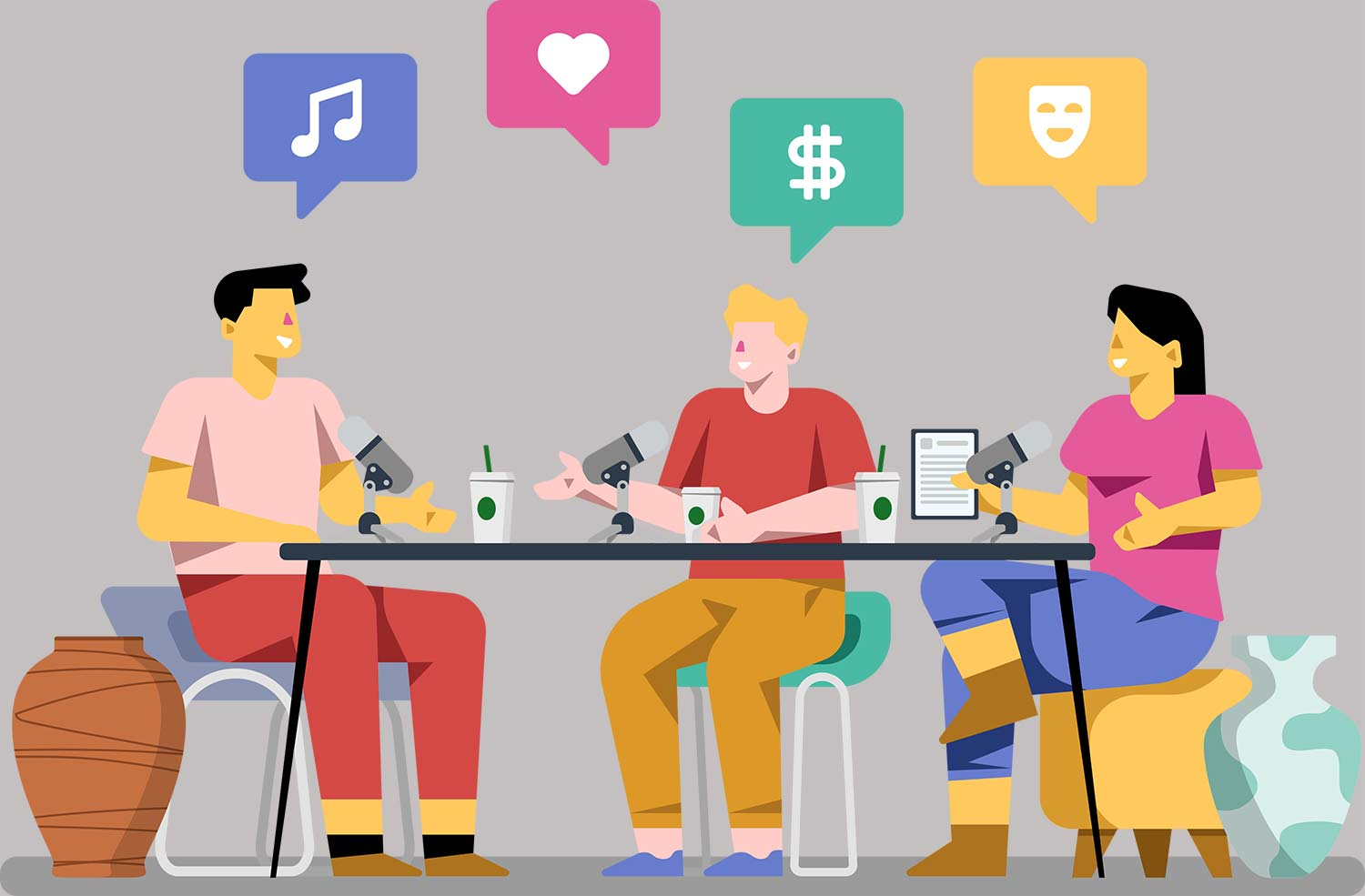Let’s face it: podcasts cost money. To create engaging and creative content, you’ll need to buy the right equipment, have help with editing (Saspod can help with that) and even just get coffee for recording days. We know that, but believe it or not, your listeners also know that, and some want to help you monetize your podcast.
Donations are a great way to monetize your podcast. Some of the biggest podcasts get tons of great support from their listeners. This American Life got the huge sum of $170k when they started asking for donations in the 2010s, and while you may not get that kind of money, you could get enough to get a new mic.
So, how do you monetize your podcast through donations? Let’s go through the easy four steps:
- Choose a platform
- Craft a donation ask
- Find the right channels for your ask
- 4. Provide feedback to your donors
1. CHOOSE A PLATFORM TO ACCEPT YOUR DONATIONS


There are plenty of different platforms for monetizing your podcast, but let’s focus on the two most popular ones: Paypal and Patreon.
PAYPAL
Paypal is probably the most popular platform worldwide for sending money to family and strangers alike.
Pros
- Well-known and trusted
- Quick and easy to use
Cons
- Takes a percentage of your donations
- The user page can be confusing
- Not very customizable
PATREON
Patreon is a crowdfunding platform used mainly to set up recurring donations. Users can set up different tier levels with different benefits for supporters. Check out their post on how to use Patreon for podcasters.
Pros
- Customizable tier levels
- Recurring donations
- Easy setup
Cons
- Not as well known as Paypal
- Donors expect extra content when signing up
2. CRAFT A DONATION ASK

There are plenty of ways to ask for donations, and you’ll probably use a mix of different types. Let’s talk about the best ways.
The simple ask: There’s nothing wrong with just asking, “If you like the show, please donate via our Paypal in the show notes.” It’s simple, it’s clear, and some listeners will be more than willing to help. You can add, ‘Your donations help keep the lights on and create more awesome free content.’
The ‘buy me a beer’ ask: this one is a bit casual but effective. It doesn’t have to be a beer either; it could be a cup of coffee, a sandwich or whatever, but it humanizes you to the listeners and can make them more likely to donate.
The goal-based ask: creatives love this ask. Basically, you say the donations are for a specific item, service, or software. For example, a new microphone or editing software. This one also establishes trust with your listeners as they know where their money is going.
The Transaction ask: This one works especially well with Patreon. Give your viewers special access to physical items for their donations. You might give donors a t-shirt if they donate 15 pounds per month. Making an extra special episode or behind-the-scenes content is also a great way to make donors feel like donating is gaining something. Whatever it is, it will sweeten the deal and make listeners more likely to part with some money if they feel they are gaining something from it. Just make sure to deliver on your promises. You don’t want to be like those hundreds of failed Kickstarter projects that leave their fans feeling betrayed.
Try out each of the different asks, and see which one works the best for monetizing your podcast.
3. FIND THE RIGHT CHANNELS FOR YOUR ASK

You should have various channels for monetizing your podcast through asks. First, make your ask during your podcast and leave a link to your Paypal or Patreon in the show notes. It’s usually best practice to do your ask somewhere near the beginning or middle of your podcast. Remember, some listeners won’t get through an entire episode, so asking for donations at the end of the episode could miss out on a lot of your fans.
Then, make a post via social media. You’ll know fans are interested in you if they’re following you and even ask them to share your Patreon or Paypal. You’d be surprised with how much listeners want to support great independent podcasts.
Finally, make a newsletter, add a donation ask and link to your Patreon or Paypal in each email. The risk here is that you might email listeners too much, and they could unsubscribe from your newsletter. Make sure to have some content other than your donation ask, and don’t send the newsletter out more than once a month.
4. FEEDBACK TO YOUR DONORS
Feedback to your donors can be as simple as a thank you or as complicated as an entire special episode. Whatever it is, it’s vital that donors feel acknowledged. They did give you money, after all.
One great way to acknowledge donors is by doing shoutouts in your episodes or show notes. It’s essential to ensure a listener wants a shoutout before you do one. On Patreon, you can have different acknowledgements for different donor tiers. For example, if you have a Martial Arts podcast, you could name the lowest tier, orange belt, the second tier, red belt; and the top tier, black belt and then thank them in emails, on Patreon, or in the podcast.
Another great way is by showing off the new equipment or software you bought with donations while saying thanks to all those who contributed. You can do this on a quick live stream on your social media or just quickly tell people on a podcast episode.
CONCLUSION:
I hope this brief guide helped you develop plans for making donation asks to start monetizing your podcast.
Asking for money from strangers can seem weird at first, but remember, your listeners really enjoy your content for a reason. You help them learn more about the world or make them laugh. You get them fascinated about new subjects or help them feel connected with others. If you want, you can think of it as a business: you provide a service and deserve compensation.
Bogdan Bratis
CEO & Founder of Saspod. Podcast Producer & Digital Marketing Expert. I'm based in Glasgow, where on the side I play keyboard in function bands throughout Scotland, and I'm addicted to coffee.


Comments
No comments yet!